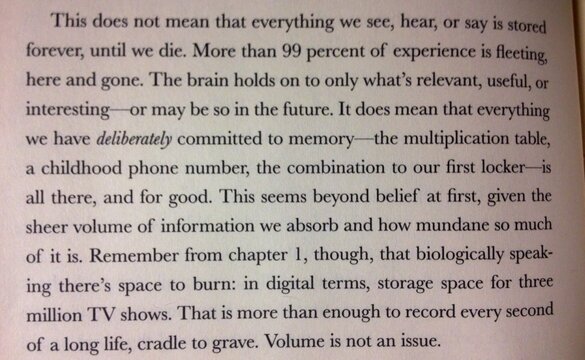For anyone here who is not about to read Hegel's Phenomenology of Mind, this is a good summary of the first three chapters of that work:
Georg Wilhelm Friedrich Hegel (1770–1831)
←
Phenomenology of Spirit, Chapters 1 to 3: “Shapes of Consciousness”
Summary
Hegel attempts to outline the fundamental nature and conditions of human knowledge in these first three chapters. He asserts that the mind does not immediately grasp the objects in the world, concurring with Kant, who said that knowledge is not knowledge of “things-in-themselves,” or of pure inputs from the senses. A long-standing debate raged in philosophy between those who believed that “matter” was the most important part of knowledge and those who privileged “mind.” Rationalists, such as Descartes (and before him, Plato), believed that we can only trust the truths that the mind arrives at on its own, while Empiricists, such as Locke, argued that all of our knowledge comes from our perceptions of actual objects, through our senses. Kant had sought to put this debate to rest by arguing that the meaning of objects derives from ideas, or “concepts,” that stand between mind and matter. The information entering the mind via the senses is always “mediated” by concepts. In the first part of the
Phenomenology, Hegel demonstrates that though concepts do in fact mediate matter, as Kant maintains, Hegel’s own understanding of the way concepts come into being implies a certain instability or insecurity in knowledge, which Kant overlooks.
Whereas Kant seems to imply that an individual’s mind controls thought, Hegel argues that a collective component to knowledge also exists. In fact, according to Hegel, tension always exists between an individual’s unique knowledge of things and the need for universal concepts—two movements that represent the first and second of the three so-called modes of consciousness. The first mode of consciousness—
meaning, or “sense certainty”—is the mind’s initial attempt to grasp the nature of a thing. This primary impulse runs up against the requirement that concepts have a “universal” quality, which means that different people must also be able to comprehend these concepts. This requirement leads to the second mode of consciousness,
perception. With perception, consciousness, in its search for certainty, appeals to categories of thought worked out between individuals through some kind of communicative process at the level of common language. Expressed more simply, the ideas we have of the world around us are shaped by the language we speak, so that the names and meanings that other people have worked out before us (throughout the history of language) shape our perceptions.
Consciousness is always pulled in two different directions. Our senses give us a certain kind of evidence about the world, and the categories through which we make sense of the world, categories that we learned when we learned language, tell us what the input of our senses means. The fact that a difference exists between perceptions and the meanings we give to them gives rise to a feeling of uncertainty or skepticism that is built into the very mechanism by which minds come to know objects. That is, to the extent that consciousness can grasp categories of thought, it is at the same time aware of the inadequacy of these categories and thus moved to find new ground for sense certainty, generating new concepts that smooth over the contradictions. This striving is constantly frustrated, the categories of thought reveal their inner contradictions, and consciousness is moved to posit more adequate categories. Although sense certainty is in some ways always elusive, this process of moving from less satisfactory to more satisfactory categories entails a kind learning process. Hegel calls this process
understanding, the third and highest mode of consciousness.
Analysis
For the unprepared lay reader,
Phenomenology of Spirit, the earliest of Hegel’s major “mature” works, can be a frustrating introduction to his highly idiosyncratic and difficult philosophical style. The difficulty arises in part because Hegel, working within the tradition of German idealism, was attempting to grapple with dimensions of human experience that lie largely outside the scope of this tradition, which was established above all by Kant. While deeply indebted to Kant, Hegel did not find the language of idealism wholly adequate to explain what he felt needed explaining, and he had to invent his own philosophical terms, which at first seem unfamiliar and strange. The difficulty of
Phenomenology also lies in the work’s extraordinary ambition. In one dizzying gesture, the twenty-seven-year-old Hegel attempts to outline and define all the diverse dimensions of human experience as he sees them: knowledge and perception, consciousness and subjectivity, social interaction, culture, history, morality, and religion. The result is chaotic, and his points are often difficult to grasp, but the work is ultimately highly rewarding for those with the right mix of patience and imagination required to “decode” Hegel.
“The spirit of man has broken with the old order of things” is the dramatic but fitting statement with which Hegel introduces
Phenomenology of Spirit. Here he sets out his agenda for a systematic philosophy the subject of which is not simply the knowing and perceiving individual mind, as it was for his immediate philosophical heirs such as Kant, but social beings who are oriented to the world collectively through culture. The individual is not simply standing directly opposite objects but rather is forced to mediate between the subjective and the collective moments of understanding—that is, between his own immediate perceptions and the ideas about the world that he shares with the people around him. In these early sections of
Phenomenology of Spirit, we get an early glimpse of this approach, the famous dialectic, the idea that knowledge is a process of striving to arrive at stable and truthful categories of thought. Knowledge-as-motion is a recurrent theme in Hegel’s writings and forms the core of his highly original approach to epistemology."
SparkNotes: Georg Wilhelm Friedrich Hegel (1770–1831): Phenomenology of Spirit, Chapters 1 to 3: “Shapes of Consciousness”
To continue, follow the arrow to the right:
→
Themes, Arguments, and Ideas
Phenomenology of Spirit, Chapter 4: “Self-consciousness” and further chapter.
Also, arrow left above [top of post] for a brief introduction to 'Hegel's Dialectic as the Fundamental Pattern of Thought'



